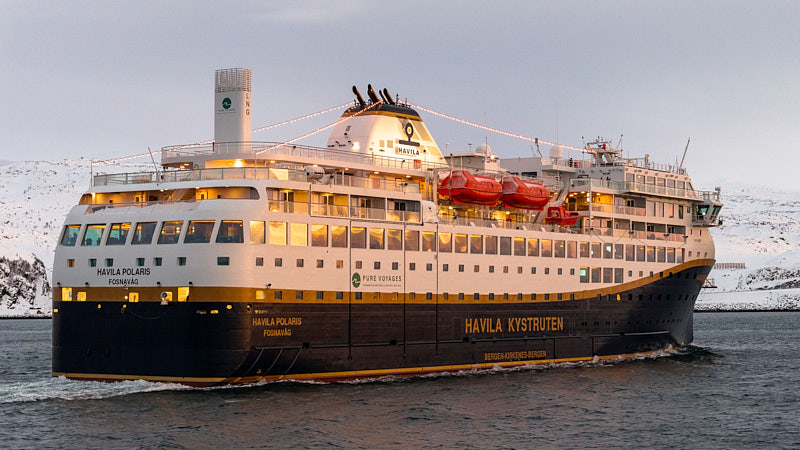Sunday 30 November HAVILA POLARIS departed Bergen on what is set to become its first climate-neutral voyage along the Norwegian coastal route.
For this 12-day round coastal voyage, HAVILA POLARIS has been fuelled with 350 cubic metres of biogas. This volume is expected to reduce CO₂ emissions by more than 90%, demonstrating that significantly cleaner coastal shipping is already possible with today’s technology.
Havila Voyages will report the final emission results once the round trip is completed.





